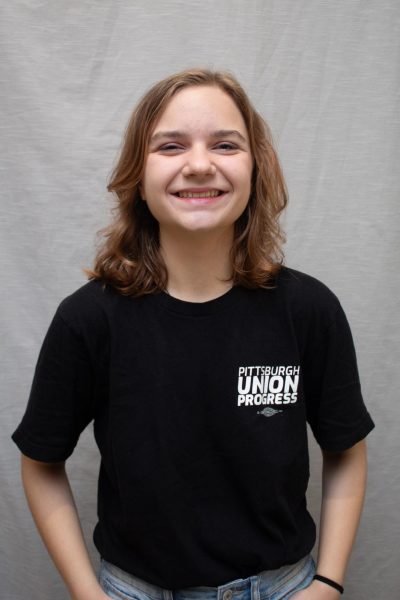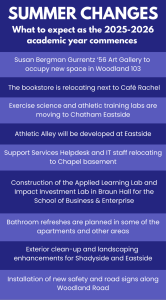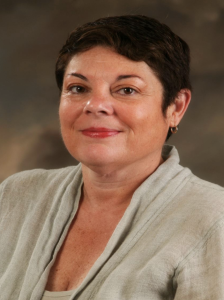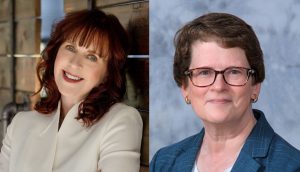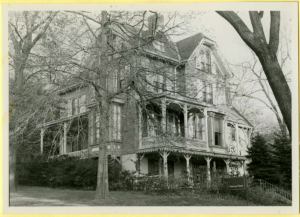Rachel Carson EcoVillage expected to finish construction by 2024
This is part one of a three-part story
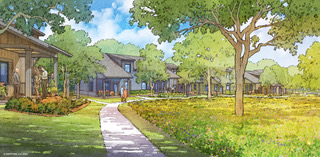
Rendering of Rachel Carson EcoVillage. Photo Credit: Rachel Carson EcoVillage
April 13, 2023
Chatham University’s cohousing project, the Rachel Carson EcoVillage, is expected to finish construction and move in residents by April 2024. The EcoVillage will be built on the Eden Hall campus, in a space previously unused by the University.
Chatham has agreed to a renewable 99-year lease for the land on the edge of the Eden Hall campus. The University put out a request proposal for developers prior to the pandemic, and construction is set to begin this year.
The EcoVillage will consist of 35 units with the capacity to house around 60 people in total and a common house, according to the project manager, Stefani Danes. Twenty-three of the 35 units are committed, and residents fund the construction of the units themselves.
The project is based on the principles of cohousing, a form of semi-communal living that encourages close relationships with the community. Decisions regarding the rules and lifestyle of those living in the EcoVillage will be made through a collective decision-making process called sociocracy.
Work is divided into groups based on topic and each group works independently to make decisions. After a few rounds of discussion on an issue, the members are asked for consent, which is defined as an agreement to a solution that does not impede the group’s goal, even if it is not what the members originally had in mind.
“In our sociocratic decision-making, there’s never an unhappy minority,” Danes said. “Everyone leaves the meeting feeling that it’s a good decision, and our experience is that this is something that connects people to each other.”
Each unit will be built to meet Passive House certification, a standard for energy efficiency that focuses on airtightness, ventilation, waterproofing, electricity usage and heating and cooling to reduce costs and waste.
Because Passive House buildings are insulated and prioritize the construction of windows to allow for natural heating during warmer months, the electricity cost is reduced. Waterproofing functions the same way, keeping bills down.
By building the units to Passive House standard, Chatham University President Dr. David Finegold hopes that the EcoVillage will be a continuation of the University’s work in sustainability.
“Part of building a more sustainable future is trying to create environments where people can show a living in a more sustainable way,” Dr. Finegold said.
Residents of the EcoVillage will have access to parts of the campus, including Eden Hall’s already-public dining hall, the Barazone Center. The EcoVillage will pay a fee to the University to access resources like empty space on the shuttle or empty classrooms. Residents will also have a community garden at the back of Eden Hall’s organic farm.
Danes added that she doesn’t think students will notice the residents on campus.
“We might encounter someone at the dining room or walking on campus. But there are many other people who live in the area who are invited to come on the campus, who come all the time and walk on the trails and walk their dogs,” she said. “Compared to the number of people who are already on campus, we’re not a very big increase.”
EcoVillage residents will volunteer around campus to help complete projects like planting new trees and removing invasive species. Danes said the cohousing community’s goal is to help the ecosystem flourish.
“That’s not a high priority when you’re trying to run an academic program and serve the students and make sure the teaching is first-rate. So, our presence there is intended to provide something that the university can’t afford to do,” she said.
Dr. Finegold said the project will be mutually beneficial for students and future residents. Students will be able to study the EcoVillage for their master’s theses and employment opportunities will be available for students who want to get more involved
“I would just ask students to keep an open mind and spend some time to talk with the people in the village,” Dr. Finegold said.


